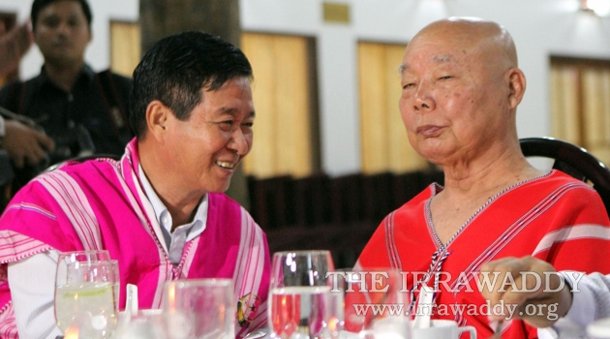CHIANG MAI, Thailand — Burma’s longest-existing ethnic resistance group, the Karen National Union (KNU) announced that it will not sign a nationwide ceasefire agreement on Feb. 12, the date that government negotiators had hoped to reach an agreement.
Following a three-day central standing committee meeting at its headquarters in Lay Wah, Hpa-an district, top officials from Karen State’s military and political bodies discussed the KNU’s political future and the possibility of reaching a peace accord.
Mahn Mahn, a joint secretary of the KNU, told The Irrawaddy that members “reviewed sticking points and obstacles,” identifying four problems within the existing draft ceasefire agreement.
The establishment of a federal union and armed forces, repositioning of troops and implementation of a code of conduct need to be addressed before the KNU would be willing to sign the agreement, he said.
He added that future discussions, which will resume after Feb. 12, can only succeed if progress is made on issues related to disarmament, demobilization and reintegration (DDR), which has been a point of contention in the current draft. which has been a point of contention in the current draft. The KNU would also like to see implementation of agreements made under the current bilateral ceasefire, such as legitimizing the KNU as a polity and making other administrative and legislative changes.
Mahn Mahn said that because of these shortcomings of the peace process and the current ceasefire draft, it would be “impossible to sign it soon,” though the government had been aiming for a deal on Feb. 12, also known as Union Day, the anniversary of Burma’s historic Panglong Agreement.
He expressed some solidarity with other ethnic armed groups involved in the peace process, adding that, “the KNU won’t sign [the ceasefire] alone.”
The KNU is Burma’s oldest ethnic resistance group, formed in 1947. Its armed counterpart, the Karen National Liberation Army, was formed two years later, and has been at odds with the Burma Army for six decades seeking political autonomy.
The KNU is now one of 16 non-state armed groups to reach bilateral ceasefires with the government since late 2011, having entered a new peace agreement in January 2012.

















